- Clone
- 2D1 (See other available formats)
- Regulatory Status
- RUO
- Other Names
- Leukocyte Common Antigen (LCA), T200
- Isotype
- Mouse IgG1, κ
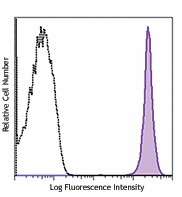
-

Human peripheral blood lymphocytes were stained with CD45 (clone 2D1) APC (filled histogram) or mouse IgG1, κ APC isotype control (open histogram).
| Cat # | Size | Price | Quantity Check Availability | ||
|---|---|---|---|---|---|
| 368511 | 25 tests | $78.00 | |||
| 368512 | 100 tests | $220.00 | |||
CD45 is a 180 - 240 kD single chain type I membrane glycoprotein also known as leukocyte common antigen (LCA) and T200. It is a tyrosine phosphatase expressed on the plasma membrane of all hematopoietic cells, except erythrocytes or platelets. CD45 is a signaling molecule that regulates a variety of cellular processes including cell growth, differentiation, cell cycle, and oncogenic transformation. CD45 plays a critical role in T and B cell antigen receptor-mediated activation by dephosphorylating substrates including p56Lck, p59Fyn, and other Src family kinases. CD45 non-covalently associates with lymphocyte phosphatase-associated phosphoprotein (LPAP) on T and B lymphocytes. CD45 has been reported to bind galectin-1 and to be associated with several other cell surface antigens including CD1, CD2, CD3, and CD4.
Product Details
- Verified Reactivity
- Human
- Antibody Type
- Monoclonal
- Host Species
- Mouse
- Immunogen
- Human PBMC
- Formulation
- Phosphate-buffered solution, pH 7.2, containing 0.09% sodium azide and BSA (origin USA)
- Preparation
- The antibody was purified by affinity chromatography and conjugated with APC under optimal conditions.
- Concentration
- Lot-specific (to obtain lot-specific concentration and expiration, please enter the lot number in our Certificate of Analysis online tool.)
- Storage & Handling
- The antibody solution should be stored undiluted between 2°C and 8°C, and protected from prolonged exposure to light. Do not freeze.
- Application
-
FC - Quality tested
- Recommended Usage
-
Each lot of this antibody is quality control tested by immunofluorescent staining with flow cytometric analysis. For flow cytometric staining, the suggested use of this reagent is 5 µl per million cells in 100 µl staining volume or 5 µl per 100 µl of whole blood.
- Excitation Laser
-
Red Laser (633 nm)
- Application Notes
-
It was found that the HI30 clone and the 2D1 clone can cross block each other's binding.
-
Application References
(PubMed link indicates BioLegend citation) -
- Bradstock KF, et al. 1980. J. Natl. Cancer Inst. 65:33.
- Csiba A, et al. 1984. Br. J. Cancer 50:699.
- Tchilian EZ, et al. 2001. J. Immunol. 166:1308.
- Lee MS, et al. 2004. Int. Immunol. 16:1109.
- Product Citations
-
- RRID
-
AB_2566371 (BioLegend Cat. No. 368511)
AB_2566371 (BioLegend Cat. No. 368512)
Antigen Details
- Structure
- Type I transmembrane protein, 180 - 240 kD (multiple isoforms)
- Distribution
-
Hematopoietic cells, except circulating erythrocytes or platelets.
- Function
- Tyrosine phosphatases, signaling, co-stimulation (co-inhibition), TCR and BCR mediated activation.
- Ligand/Receptor
- Galectin-1, CD2, CD3, and CD4.
- Cell Type
- B cells, Dendritic cells, Neutrophils
- Biology Area
- Cell Biology, Immunology, Inhibitory Molecules, Neuroscience, Neuroscience Cell Markers
- Molecular Family
- CD Molecules, Protein Kinases/Phosphatase, TCRs
- Antigen References
-
1. Thomas M. 1989. Annu. Rev. Immunol. 7:339.
2. Trowbridge I, et al. 1994. Annu. Rev. Immunol. 12:85. - Gene ID
- 5788 View all products for this Gene ID
- UniProt
- View information about CD45 on UniProt.org
Other Formats
View All CD45 Reagents Request Custom ConjugationCompare Data Across All Formats
This data display is provided for general comparisons between formats.
Your actual data may vary due to variations in samples, target cells, instruments and their settings, staining conditions, and other factors.
If you need assistance with selecting the best format contact our expert technical support team.
-
Purified anti-human CD45
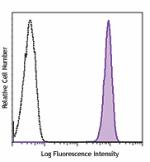
Human peripheral blood lymphocytes were stained with purifie... -
PerCP anti-human CD45
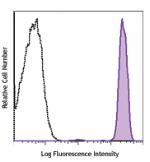
Human peripheral blood lymphocytes were stained with CD45 (c... -
FITC anti-human CD45
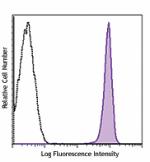
Human peripheral blood lymphocytes were stained with CD45 (c... -
PE anti-human CD45
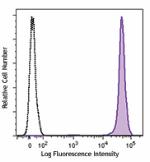
Human peripheral blood lymphocytes were stained with CD45 (c... -
APC anti-human CD45
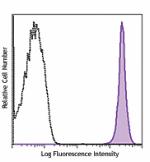
Human peripheral blood lymphocytes were stained with CD45 (c... -
Alexa Fluor® 700 anti-human CD45
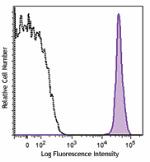
Human peripheral blood lymphocytes were stained with CD45 (c... -
APC/Cyanine7 anti-human CD45
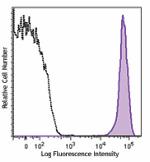
Human peripheral blood lymphocytes were stained with CD45 (c... -
PerCP/Cyanine5.5 anti-human CD45
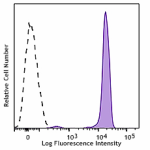
Human peripheral blood lymphocytes were stained with CD45 (c... -
APC/Fire™ 750 anti-human CD45
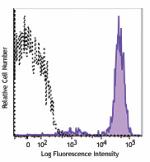
Human peripheral blood lymphocytes were stained with CD45 (c... -
Alexa Fluor® 594 anti-human CD45
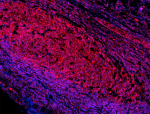
Human paraffin-embedded tonsil tissue slices were prepared w... -
Brilliant Violet 510™ anti-human CD45
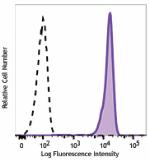
Human peripheral blood lymphocytes were stained with CD45 (c... -
Brilliant Violet 421™ anti-human CD45
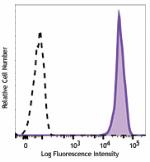
Human peripheral blood lymphocytes were stained with CD45 (c... -
PE/Dazzle™ 594 anti-human CD45
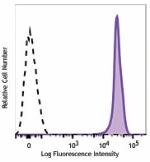
Human peripheral blood lymphocytes were stained with CD45 (c... -
Brilliant Violet 605™ anti-human CD45
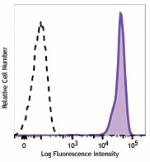
Human peripheral blood lymphocytes were stained with CD45 (c... -
PE/Cyanine7 anti-human CD45
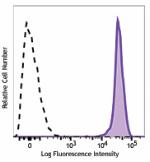
Human peripheral blood lymphocytes were stained with CD45 (c... -
Pacific Blue™ anti-human CD45
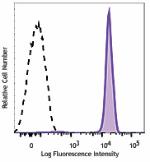
Human peripheral blood lymphocytes were stained with CD45 (c... -
Alexa Fluor® 647 anti-human CD45
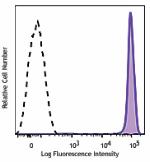
Human peripheral blood lymphocytes were stained with CD45 (c... -
Biotin anti-human CD45
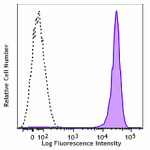
Human peripheral blood lymphocytes were stained with CD45 (c... -
Alexa Fluor® 488 anti-human CD45
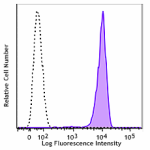
Human peripheral blood lymphocytes were stained with CD45 (c... -
TotalSeq™-A0048 anti-human CD45
-
Brilliant Violet 750™ anti-human CD45
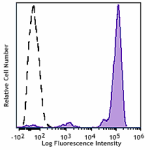
Human peripheral blood lymphocytes were stained with CD45 (c... -
TotalSeq™-C0048 anti-human CD45
-
TotalSeq™-B0048 anti-human CD45
-
Spark Blue™ 550 anti-human CD45
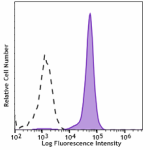
Human peripheral blood lymphocytes were stained with CD45 (c... -
Spark NIR™ 685 anti-human CD45
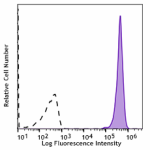
Human peripheral blood lymphocytes were stained with CD45 (c... -
TotalSeq™-D0048 anti-human CD45
-
PE/Cyanine5 anti-human CD45
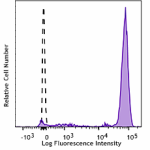
Human peripheral blood lymphocytes were stained with anti-hu... -
Spark Blue™ 574 anti-human CD45 Antibody
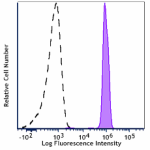
Human peripheral blood lymphocytes were stained with anti-hu... -
Spark Violet™ 500 anti-human CD45
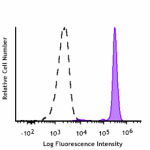
Human peripheral blood lymphocytes were stained with anti-hu... -
Spark Red™ 718 anti-human CD45

Human peripheral blood lymphocytes were stained with anti-hu...
